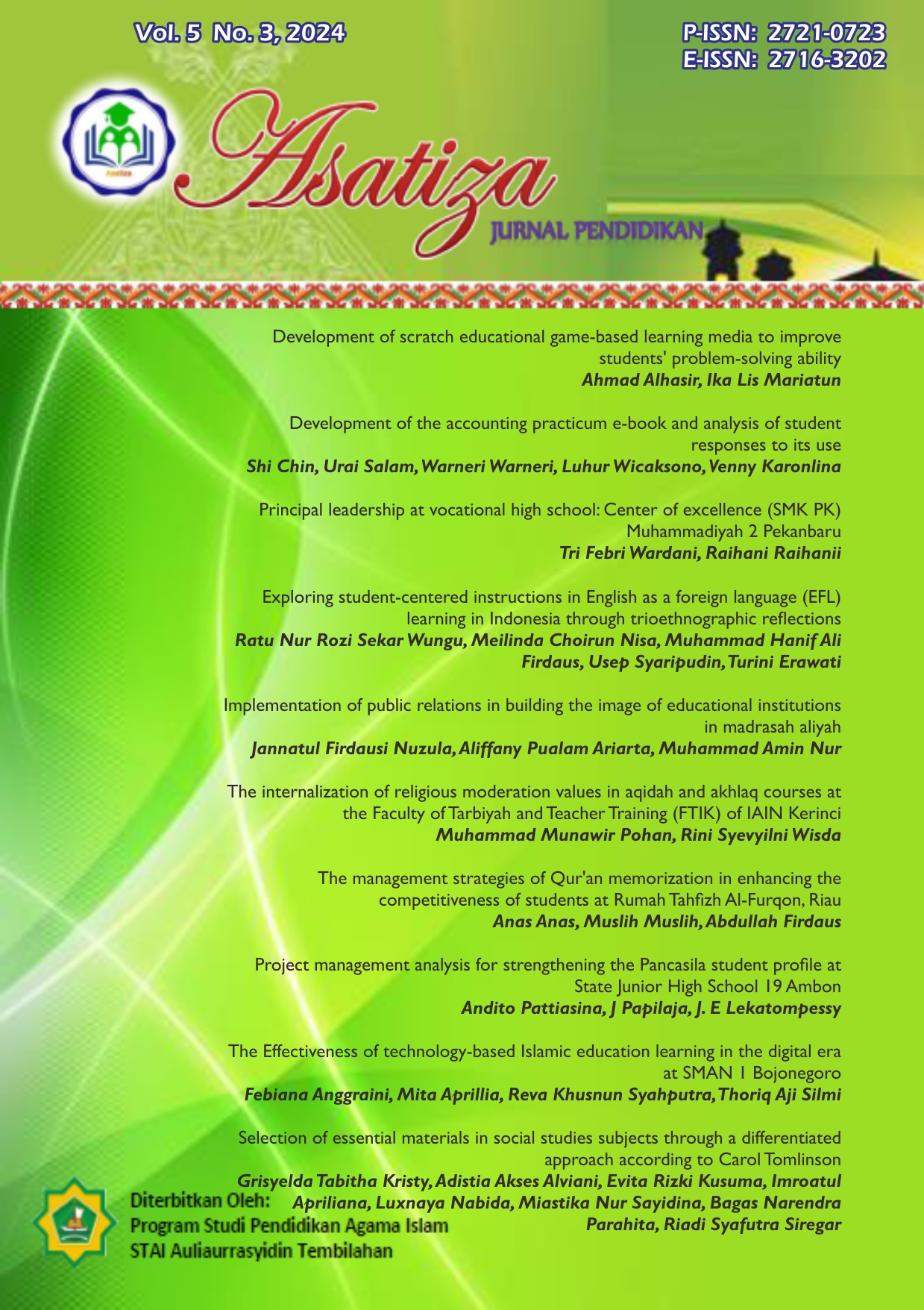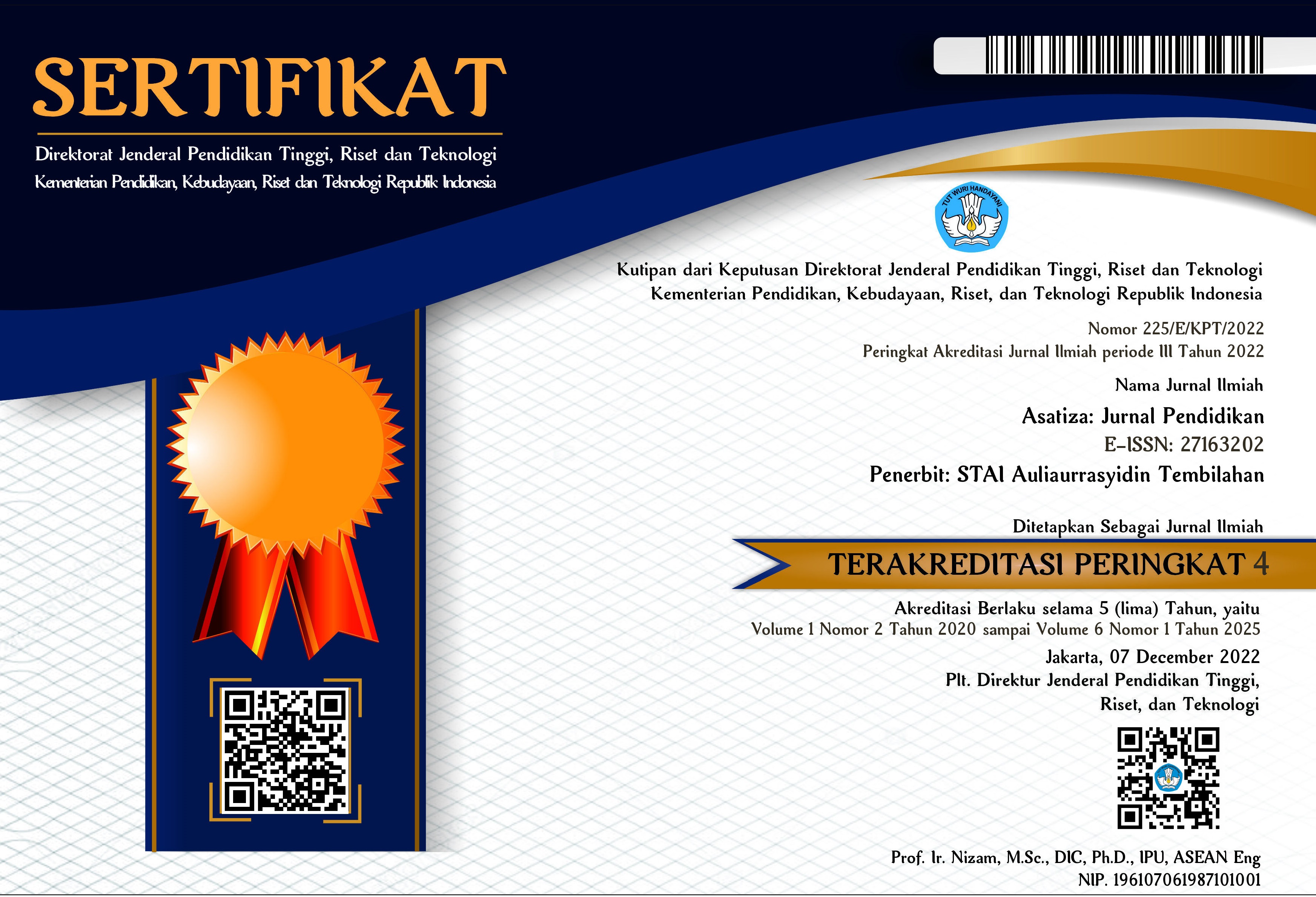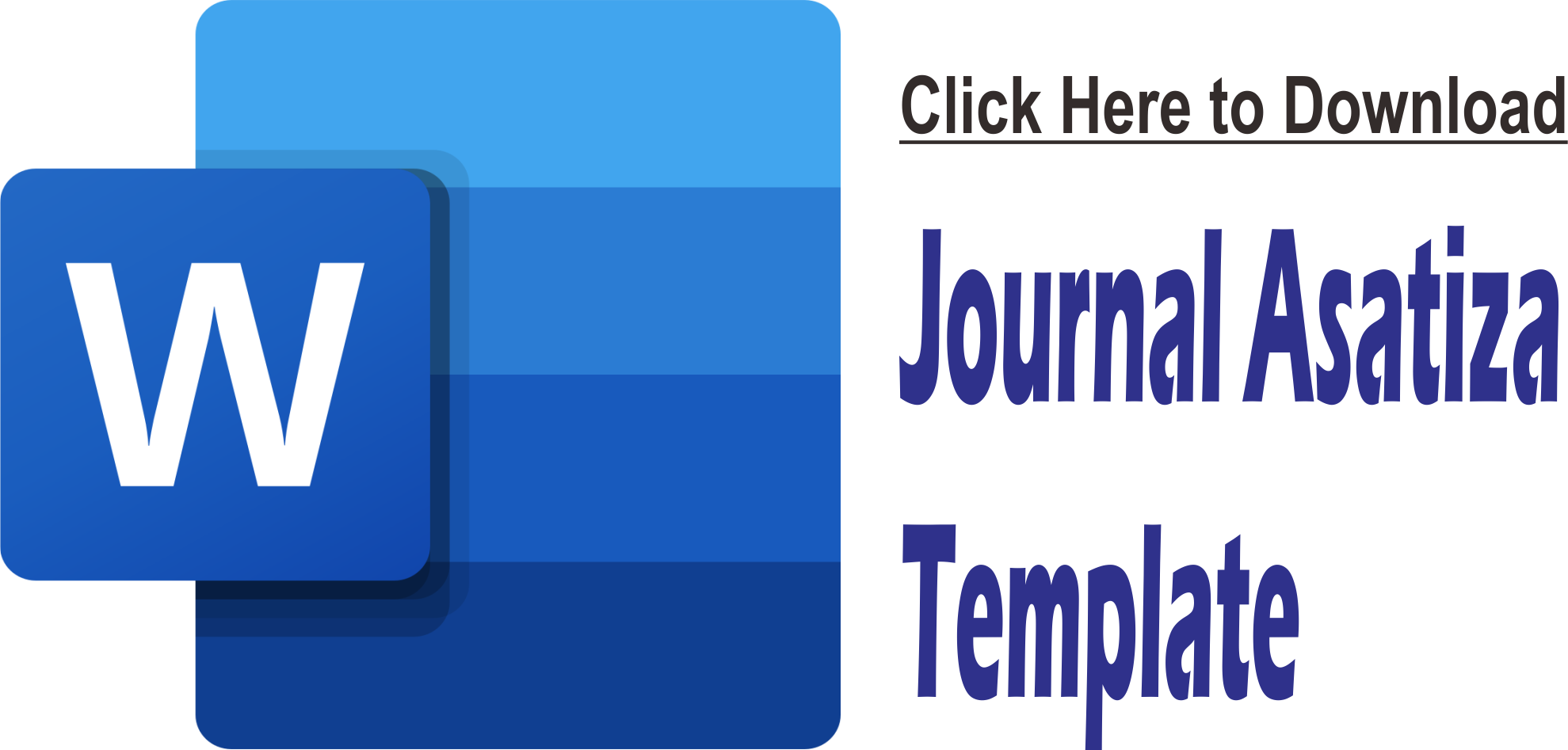The management strategies of Qur'an memorization in enhancing the competitiveness of students at Rumah Tahfizh Al-Furqon, Riau
DOI:
https://doi.org/10.46963/asatiza.v5i3.2202Keywords:
Management Strategies, Rumah Tahfiz, MemorizationAbstract
The management of the Qur'an memorization program at Rumah Tahfizh Al-Furqon, Mugomulyo, Sungai Batang Subdistrict, Indragiri Hilir Regency, Riau, plays a crucial role in enhancing the competitive advantage of its students. This study aims to analyze the management strategies implemented and their impact on the quality of memorization and character development of the students. Using field research with a phenomenological approach, this study involved Qur'an memorization teachers and students as respondents. Data collection techniques included interviews, observation, and documentation. The findings reveal that the program not only improves the students' memorization skills but also plays a key role in fostering discipline, responsibility, and leadership among them. Rumah Tahfizh Al-Furqon significantly contributes to shaping a generation that is both competitive and of high moral character within society, while also strengthening the institution's role in Islamic education. This research can serve as a reference for other Qur'an memorization institutions in developing similar programs.
Downloads
References
Aan Komariah, D. S. (2014). Metodologi Penelitian. alfabeta.
Al Hafidz, A. W., & Al Hafidz, K. H. M. (1994). Bimbingan Praktis Menghafal Al-Qur’an. Bumi Aksara.
Ar-Rozi, F. (2012). Mafatih Al-Ghaib. Dar El-hadith.
Bahruddin, B. (2022). Al-Qur’an Dan Cara Menghafalnya. EUREKA MEDIA AKSARA.
Departemen Agama RI, D. A. R. (2020). Al-qur’an dan Terjemah. Pustaka Al-Kautsar.
Hidayah, A. (2018). Metode tahfidz Al-Qur’an Untuk Anak Usia Dini (Kajian Atas Buku Rahasia Sukses 3 Hafizh Quran Cilik Mengguncang Dunia). Jurnal Studi Ilmu-ilmu Al-Qur’an dan Hadis, 18(1), 51. https://doi.org/10.14421/qh.2017.1801-04
Ida Husnur Rahmawati, F. M. (2019). Rahasia Sukses 3 Hafizh Quran Cilik Menguncang Dunia. Zikrul Hakim.
Meleong, L. J. (1989). Metologi Penelitian Kualitatif. PT Remaja Rosdakarya.
Ramadhana, F. A. S., & Fauji, I. (2024). Manajemen muroja’ah hafalan Al-Qur’an untuk meningkatkan standart mutqin di Rumah Tahfidz Balita. UMSIDA Preprints Server. https://doi.org/10.21070/ups.3829
Rasyidi, A. (2023). Dinamika kurikulum pondok pesantren tahfiz Al-Qur′an di Kalimantan Selatan. El-Buhuth: Borneo Journal of Islamic Studies, 5(2), 245–266. https://doi.org/10.21093/el-buhuth.v5i2.5940
Rofiul Wahyudi, R. W. (2024). Sukses Menghafal dan Menjaga Al-Qur`An Meski Sibuk Kuliah. Elexmedia.
Sa’dulloh. (2008). 9 Cara Praktis Menghafal Al-Qur’an. Gema Insani.
Tohirin, T. (2012). Metode Penelitian Kualitatif dalam Pendidikan dan Bimbingan Konseling. Raja Grafindo.
Wahhab Khalaf, A. (2017). Ilmu Usul Al-Fiqh (5 ed.). Darul Kutub Al-Ilmiyah.
Wahidi, R. (2017). Metode Cepat Hafal Al-Quran Saat Sibuk Sekolah. Elexmedia.
Waslah, W., Kholid, A., & Tiarawati, I. (2022). Ketersediaan SDM dan sarana prasarana dalam menunjang pembelajaran Al-Quran di Pondok Pesantren Hamalatul Quran Putri Jogoroto Jombang. Dinamika: Jurnal Kajian Pendidikan Dan Keislaman, 7(1), 14–21. https://doi.org/10.32764/dinamika.v7i1.2295
Downloads
Published
Issue
Section
License
Copyright (c) 2024 Anas Anas, Muslih Muslih, Abdullah Firdaus

This work is licensed under a Creative Commons Attribution-ShareAlike 4.0 International License.
Authors who publish with this journal agree to the following terms:
1. Copyright on any article is retained by the author(s).
2. The author grants the journal, right of first publication with the work simultaneously licensed under a Creative Commons Attribution shareAlike 4.0 International License that allows others to share the work with an acknowledgment of the work’s authorship and initial publication in this journal.
3. Authors are able to enter into separate, additional contractual arrangements for the non-exclusive distribution of the journal’s published version of the work (e.g., post it to an institutional repository or publish it in a book), with an acknowledgment of its initial publication in this journal.
4. Authors are permitted and encouraged to post their work online (e.g., in institutional repositories or on their website) prior to and during the submission process, as it can lead to productive exchanges, as well as earlier and greater citation of published work.
5. The article and any associated published material is distributed under the Creative Commons Attribution-ShareAlike 4.0 International License











2.png)



